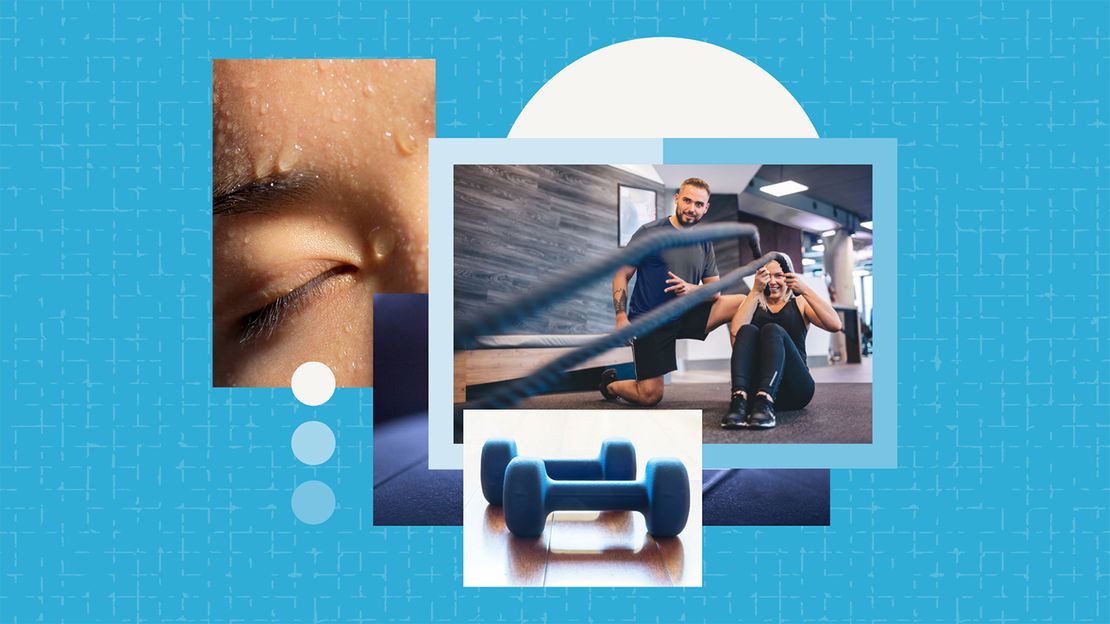You’ll find an endless supply of social media content from personal trainers, exercise enthusiasts, and everyday users eager to share their hot takes.
These communities are great for finding motivation, inspiration, and knowledge, but knowing where you will turn for what info is essential.
According to Frances Neric. National Director of Certification for the American College of Sports Medicine in Indianapolis, anyone can start a social media account and share information. “But their statements don’t need to be scientifically based.”
You may end up with workouts that you don’t like, are ineffective, or even dangerous. How can you tell who is legitimate and who is not? What type of advice should you seek from whom?
What you need to know
What Qualifies Someone as a Certified Personal Trainee?
Fitness training is not governed by a single professional body or society, as in other professions like medicine and dentistry. Multiple professional organizations offer training programs for fitness professionals.
Many professional organizations offer certificates and credentials. Neric recommends that you check the certification of any expert who will advise you on exercising.
Check the U.S. Registry of Exercise Professions (USREPS), which is accredited by the National Commission for Certifying Agencies, will show if the personal trainer has been certified through a program that meets industry standards and has a proven track record of safety and effectiveness, according to Neric. The NCCA permits a wide range of professions, including nurses and counselors.
The “certified personal trainer,” or CPT, is a standard fitness certification. According to USREPS, reputable organizations that certify trainers include the American Council on Exercise(ACE), the American College of Sports Medicine(ACSM), the National Council on Strength and Fitness, and the National Strength and Conditioning Association.
The NCCA also offers other fitness certifications.
- The ACE certifies group fitness instructors (GFIs)
- Advanced certification programs are available (which require additional time and training). These include a Certified Strength and Conditioning Specialist (CSCS) by the NSCA or a Certified Strength Coach (CSC) by the NCSF.
This registry is comprehensive and searchable, but it is only partial.
Other NCCA-accredited groups certifying personal trainers and fitness instructors are not members of USREPS, including the National Academy of Sports Medicine and the National Federation of Professional Trainers.
Neric advises that to verify that a person has been certified, it is essential to check that the certification body is NCCA accredited.
What advice should I be getting from a personal trainer anyway?
According to the NFPT, a certified personal trainer (or anyone with one of the advanced NCCA-accredited fitness credentials) can:
- Human anatomy and basic exercise science are explained.
- Create a weekly exercise program that includes cardio, strength exercises, and flexibility. This will be tailored to your specific needs and goals.
- You will learn how to perform the moves safely and effectively with good form.
- Stay motivated by following these tips.
A certified personal trainer may be able to give essential nutrition advice, but they cannot provide specific nutrition advice. Neric warns that if an exercise professional gives direct advice on what to eat and what not, you should be alert. The person may share general information like what a caloric is, but should not prescribe any specific eating plans or diets.
For information about what to eat and how to exercise, a registered dietitian-nutritionist (RDN) can offer diet advice and recommendations for eating and exercise, according to the American Academy of Nutrition and Dietetics.
You may be looking for someone with an additional certification. Ideally, this would be someone with a Board-certified Specialist in Sports Dietetics (CSSD), a credential issued by the Academy of Nutrition and Dietetics.
Some accredited exercise certification programs offer specialty nutrition programs. These individuals have a greater understanding of nutrition than an RDN, but their education is less extensive.
Neric recommends that you find someone who withh an RDN and is artified fitness professional. These people are hard to come by, but there are some.
What about certifications for specialized workouts like Zumba or Pilates
What makes someone an expert in a specialized exercise, such as Zumba, CrossFit, or Pilates, varies.
- Zumba is a trademarked fitness program. Individuals can become licensed Zumba instructors through Zumba.com. It requires 10 hours of video-based education or a two-day or one-day licensing course. It is optional to have any prior fitness experience.
- CrossFit is the CrossFit Level 1 or 2 certificate. Level 3 is the most advanced. CrossFit Level 1 certificates require two days of classroom training, plus workouts and training sessions. No prerequisites are needed to become a CrossFit Level 1 Coach.
- Yoga Alliance, the largest non-profit yoga certification organization, offers certifications to yoga schools (registered school, or RYS) and yoga teachers worldwide (registered teacher, or RYT). The number that follows an RYT (usually 500 or 200) indicates how many hours of teacher training they have completed at a registered school. RYT 200 suggests that the instructor has completed 200 hours of training at an RYS. A more advanced certification (registered yoga teacher with experience or ERYT) is also available. It can be 200 or 500 hours. The Yoga Alliance’s website has a registry of teachers that you can use to check if an instructor is an RYT. You can also become a National Council for Certified Personal Trainers certified Yoga instructor or CYI.
- Pilates National Pilates Certificate Program can certify a person as a Nationally Certified Pilates Teacher (NCPT). The training is 450 hours long, includes each of the apparatuses, and requires that individuals pass an examination.
- BarreBarre certification is available through a variety of organizations. American Barre Technique is a continuing education program for personal trainers. It is offered by organizations such as ACE or NASM. American Barre Technique provides online certification courses from levels 1 to 4. Level 4 is the most advanced. International Ballet Barre Fitness Association is another option. You must have a teaching certificate as a Pilates, Yoga, or Group Fitness instructor, or you can pass a barre course.

